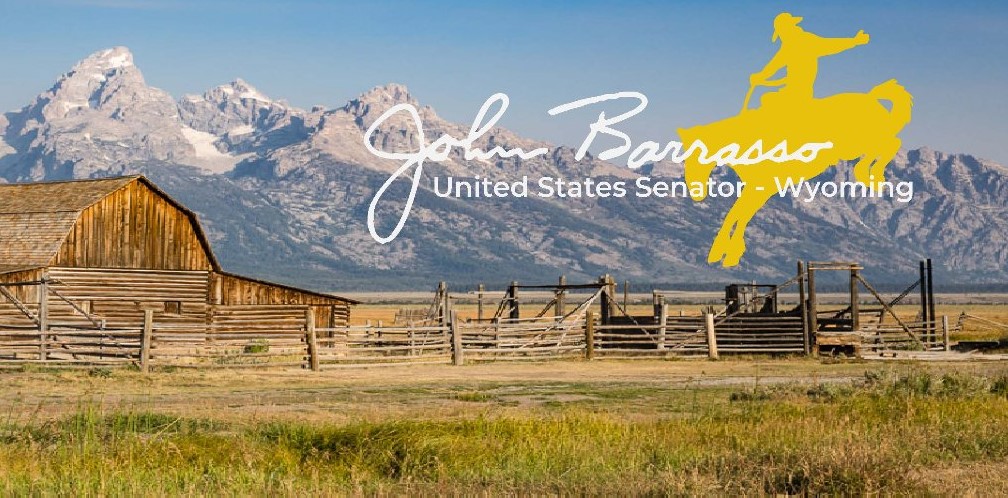Source: United States Senator for Wyoming John Barrasso
WASHINGTON, DC – U.S. Senator John Barrasso (R-Wyo.) recently questioned U.S. Health and Human Services Secretary Xavier Becerra on protecting the hospice industry from bad actors and improving health care in rural communities.
Sen. Barrasso reiterated the need for the Centers for Medicare and Medicaid Services (CMS) to provide a plan to ensure new Alzheimer’s therapies reach rural and tribal communities. He also questioned Sec. Becerra on when CMS will provide a clarification for Rural Health Clinics (RHCs) applications that are being inappropriately rejected or blocked due to lack of policy regarding the RHC location requirements.
Sen. Barrasso also spoke on stopping waste, fraud and abuse in the hospice care industry.
Secretary Becerra testified at the Senate Committee on Finance hearing this week.
Click here to watch Sen. Barrasso’s full exchange with Becerra.
On Stopping For-Profit Hospice Providers:
“As a physician, I know the importance of protecting Medicare for future generations. Stopping waste, fraud and abuse are critical for all of us. It’s a bipartisan priority.
“Late last year, I was joined by my colleagues on the Senate Comprehensive Care Caucus in sending a letter to the Centers for Medicare and Medicaid Services (CMS). The purpose was to point out the proliferation of new for-profit hospice providers.
“I think about the hospices in Wyoming, like Central Wyoming Hospice that I’m very involved with in Casper, and we have some around the state of Wyoming. Community involvement, people volunteer, go to events, raise money – they are amazing centers that provide care and comfort and compassion.
“Most troubling, is that your own data showed a proliferation of these new for-profit hospices – they are sharing the exact same addresses. I am trying to figure out exactly what is going on here and why this is happening.
“Do you share my concern in this pattern of sudden growth of these Medicare-certified hospices in certain parts of the country?
“What are you finding out? Are there bad actors out there and are there things we can do to curb them to prevent some of this waste, fraud and abuse?”
Follow-up:
“I’d like to point out there is a bipartisan group on this committee that want to assist you and help you and share the information you come up with so we can put an end to this.”
Click here to see Sen. Barrasso’s remarks on for-profit hospice providers.
On Access to New Alzheimer’s Treatments in Rural Communities:
“Rural health remains a top priority for me. I met today with the Wyoming Alzheimer Association and there are a number of people here in the audience today listening to you testify wearing the sashes representing family members and others with Alzheimer’s.
“I am encouraged there is a new class of Alzheimer’s treatments. It is giving families some hope they will have more quality time with their loved ones before the disease takes hold. It’s not a cure – but there’s hope there.
“We just need to make sure what’s available in certain locations can also be made available to our tribal communities and to our rural beneficiaries.
“The Centers for Medicare and Medicaid Services (CMS) has a policy for coverage with evidence development.
“It is requiring additional clinical trials and/or registries that could create logistical challenges for people in rural areas as well as providers who are trying to take care of them because they are not all eligible based on where you are.
“How is CMS planning to ensure that those with Alzheimer’s in rural settings and tribal communities gain access to therapies which are currently FDA approved?”
Follow-up:
“Specifically, with FDA approved drugs, unless you are part of this next generation follow through, it is harder to get those – can’t actually get them – in rural communities, tribal communities based on your location even though it is FDA approved.”
Click here to see Sen. Barrasso’s remarks on access to Alzheimer’s therapies in rural communities.
On Rural Health Clinics:
“Over 5,200 Centers for Medicare and Medicaid Services (CMS)-certified Rural Health Clinics (RHCs) provide outpatient services all across the country.
“The Census Bureau no longer defines ‘urbanized areas,’ previously defined as urban areas of 50,000 or more.
“But the RHC statute requires that RHCs must be located in areas that are not urbanized area, as defined by the Census Bureau. So they don’t define them anymore.
“So there is a lack of policy and what we are seeing is RHC applications are currently being either inappropriately rejected based on assumptions of what the new policy is or simply blocked by states waiting for a clarification from CMS.
“I know you are aware of this, can you just hold forth on that?”
Click here to see Sen. Barrasso’s remarks on Rural Health Clinics.
###
